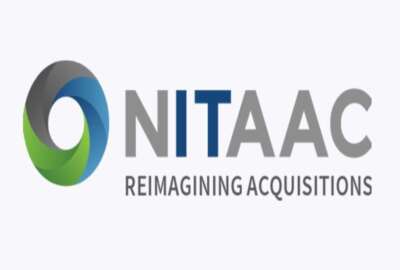The goal posts for the CIO-SP4 governmentwide acquisition contract just moved a bit further down the field.
The National Institutes of Health’s IT Acquisition and Assessment Center (NITAAC) will need several more months before trying to make awards for a second time under the Chief Information Officer-Solutions and Partners 4 (CIO-SP4) program.
Ricky Clark, the deputy director of NITAAC, said in a statement yesterday it would take corrective action and reevaluate all proposals after the Government Accountability Office sustained 125 protests, the final 27 of which yesterday as well. GAO announced the first 98 sustainments in late June.
Additionally, NITAAC is extending the CIO-SP3 GWAC through April 29. The vehicle was supposed to sunset in May 2022.
“[Al]though we do not anticipate needing an additional six months we will provide it to April 29, 2024, to ensure there is no gap in contractual coverage for our customers between CIO-SP3 and CIO-SP4,” Clark said. “Rest assured, NITAAC is steadfastly working to bring CIO-SP4 to market. The $50 billion GWAC will be the go-to resource for agencies looking to procure information technology (IT)— such as blockchain, cybersecurity, agile software development and “as-a-service-solutions” — and will offer over a hundred new labor categories and 10 task areas encompassing new and emerging IT, and a myriad of potential small business partners in eight socioeconomic categories.”
There still are 10 open protests on GAO’s docket with decision due dates ranging from early August to early October. It’s unclear how NITAAC’s decision to take corrective action will impact these remaining protests.
This is the second time NITAAC took corrective action after companies submitted 119 protests in December. NITAAC told GAO that it would reassess the self-scoring cut-off line and make a new determination on the highest rated offerors that proceed to phase 2.
Clark also highlighted that despite this latest setback, NITAAC has been overwhelming successful in winning a majority of the 350 protests CIO-SP4 has faced over the last three years.
“The most recent GAO decision concurred with NITAAC’s interpretation of the solicitation for the vast majority of arguments…” Clark said.
Clark listed 12 different allegations that vendors levied against CIO-SP4 over the last few years that GAO rejected, including: Allegations that the cut lines favored mentor-protégé joint ventures, or small businesses who partnered with large business mentors; Allegations that the agency’s evaluation criteria created unstated mandatory requirements that were unduly restrictive of competition for small businesses; and Allegations that the cut lines were improper competitive range determinations that did not follow FAR Part 15.
Clark also emphasized several other challenges that NITAAC faced in getting CIO-SP4 to market, which he agreed the journey “has admittedly been a long one, filled with all the expected growing pains of a record setting competitive federal acquisition. With those growing pains, we also have had to contend with a significant rule change by the Small Business Administration (SBA), some staff turnover and a heavy amount of media coverage — including rumors and other misinformation.”
Copyright
© 2024 Federal News Network. All rights reserved. This website is not intended for users located within the European Economic Area.





